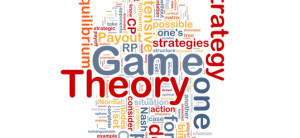 B2B Sales is a game played by companies to win new clients. It’s only a “process” when looking through the seller’s eyes. We focus on process too much in B2B sales, which often has us put prospects in a box that doesn’t fit.
B2B Sales is a game played by companies to win new clients. It’s only a “process” when looking through the seller’s eyes. We focus on process too much in B2B sales, which often has us put prospects in a box that doesn’t fit.
So, the first thing you have to get is that the buyer is setting “the rules of the game”. In game theory parlance, that means they set out how many alternatives they may select from and what the next possible move is in the game – accept, counter, withdraw. Your sales stages and qualifying have no effect on how the client sees the game. Are you using the basic characteristics of this game to your advantage?
It’s axiomatic that by being on offense, by taking initiative, one can control an opponent by forcing them to take defensive actions. Being on offense is also a way of engaging a client, one of the “rules of the game” for me is to always be on offense. If I’m reacting instead of affecting, I’m usually losing. Example: The client insists I do a free pilot. I ask, “Who will be assigned to it?” And we find out this person’s time is already 80% committed to other work. I then ask, “What are we trying to prove?” And we discuss say a performance concern. Then I ask, “Will a pilot even prove that?” – which it usually doesn’t. At each step of the way I’m challenging their assumptions and getting at what matters most. If I’m not provocative, I never get to have that level of interchange and I’m not changing the client’s thinking, and if I’m not affecting the client’s thinking, I’m not winning.
I want you to get something here. You only affect how a client behaves and acts when you don’t comply with their framing of the game. If the client buys your re-framing from the outset, win rates go up dramatically. Put more bluntly, first you win an argument and then you win a sale – changing the narrative changes the rules of the game.
The game concept goes even deeper for the B2B sales rep. In fact, the game you are playing isn’t about winning any given deal, it’s about maximizing your possibility of winning more deals than you “should”. Example, if you are in deals where there are 3 other real competitors/substitutes/alternates and all other things were equal and it was a random draw, you should win 1 out of every 4 deals. If you adopt the above “disruptor” strategy in some percentage of the opps you work, would you win more than 1 in 4? It might not work out each time, but if it works half the time you are doubling your effectiveness versus a random draw. Winning 50% of opportunities you compete on is a great close rate – this is how a “game theory” point of view on sales helps you become improve win rates.
Focus on maximizing your probability of winning by understanding the “game” that you are in as a B2B sales rep rather than your “process”.